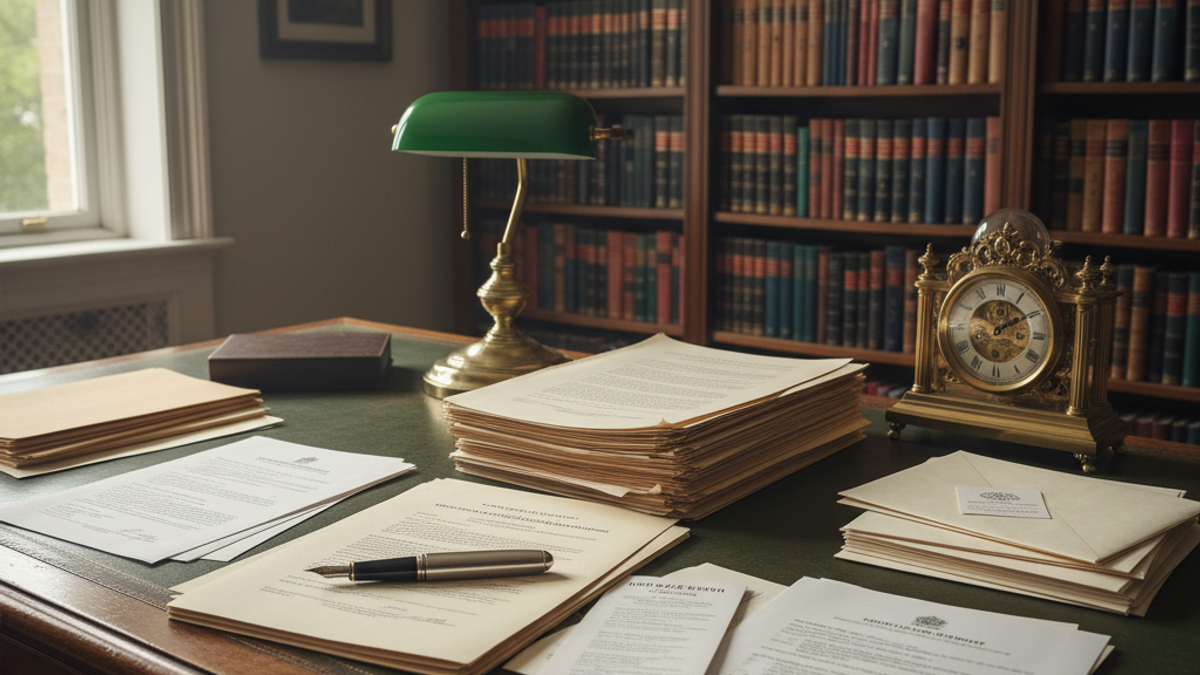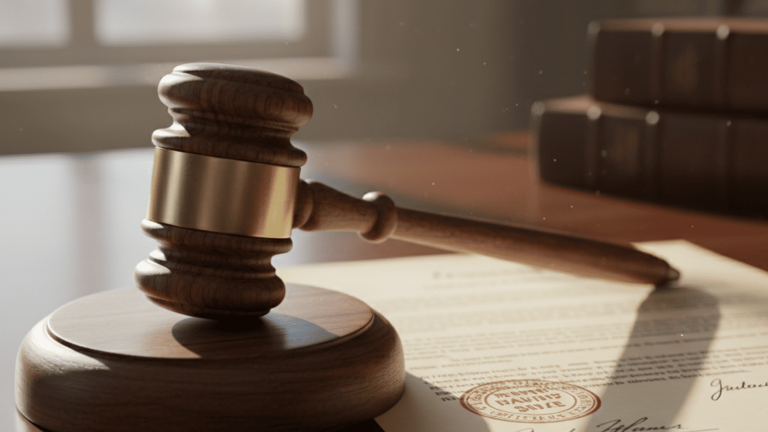Most probate attorney fees are paid up-front from the estate’s funds once the judge approves the lawyer’s invoice. The executor or administrator signs the retainer, but the estate—not the individual—cuts the check, so every dollar spent on counsel ultimately reduces what beneficiaries inherit.
What Is Probate?
Probate is the court-supervised transfer of the deceased person’s property—everything from real property and bank accounts to collectibles and vehicles—to the rightful heirs or beneficiaries. The judge appoints a personal representative (either the named executor or a court-appointed administrator) to inventory estate assets, publish notices to creditors, pay valid debt, and distribute what is left under the will or, if there is no will, under Texas intestacy law. Complex estates packed with rental houses, crypto wallets, or family businesses often need legal muscle to keep deadlines straight and avoid penalties.
Role of a Probate Attorney
A good probate lawyer drafts petitions, letters of administration, and creditor notices, attends hearings, and guides the executor through each filing so the estate administration stays on track. When the complexity of the estate spikes—multiple pieces of real estate, hard-to-value collectibles, or feuding heirs—attorney expertise can prevent costly delays and personal liability for the personal representative.
Common Fee Structures for Probate Attorneys
- Hourly rates: Under an hourly agreement the lawyer starts the clock and bills in six-minute chunks for each email, phone call, or court appearance. The pay-as-you-go setup works best when the estate is modest or the job is simple enough to keep total hours in check.
- Flat fees: One negotiated amount covers defined services—petition, first hearing, certified copies, and routine filings. Extra work is billed only if spelled out in the engagement letter. Families who want cost certainty up-front often prefer this structure and are willing to pay more if unexpected litigation pops up.
- Percentage of the estate: In a handful of states, statute sets a sliding scale tied to the gross value of the estate’s assets. Texas labels fees “reasonable,” so lawyers usually rely on hours or a flat-fee package. Percentage-based billing makes sense for very large estates or jurisdictions with a statutory schedule.
Tip: Ask the firm to explain every component—hourly rate, minimum billing increment, paralegal time, filing fees, and potential litigation surcharges—before signing.
Who Is Legally Responsible for Paying Probate Attorney Fees?
Probate attorneys don’t work for free—but who actually pays, and when, depends on the estate’s setup and the court’s oversight.
Payment From the Estate
Under Texas Estates Code §352.051, attorney fees are a category-one administrative expense—paid before beneficiaries see a dime. The executor signs the retainer, but the estate checking account pays the invoice once the court approves the amount.
When Executors or Heirs Might Be Personally Liable
Most personal representatives never reach into their own pockets. Yet a judge can surcharge an executor who drags out filings, ignores deadlines, or hires counsel without required approval. Heirs become liable if they grab property early and leave insufficient liquid assets to cover the lawyer’s invoice and other probate costs.
How the Court Oversees Probate Fees
- Court approval requirements – In supervised administrations the lawyer files a detailed invoice; the judge may trim excessive hours or duplicate entries to protect the estate.
- Disputes over fees – A hearing follows where the attorney must justify time entries. Hot fights add yet more fees because counsel charges for fee litigation.
Tips for Managing Probate Costs
Good legal help isn’t cheap, but a few simple habits can keep the bill from ballooning:
- Pin the lawyer down on cost. Ask for a written estimate at the start and quick updates whenever new assets or claims roll in.
- Negotiate the fee early. See if the firm will cap total hours, bundle routine filings at a flat rate, or trim any percentage once the estate value climbs.
- Lean on probate shortcuts. A small-estate affidavit, transfer-on-death deed, or fully funded living trust can skip full court oversight and cut costs.
- Show up with paperwork in order. Deeds, bank statements, and insurance policies gathered in one folder mean less digging—and fewer billable hours.
- Respond right away. Fast signatures and prompt emails keep the file moving and the clock from running.
Factors That Influence Probate Attorney Fees
Several moving parts decide how much a probate lawyer will charge. Think about it in five buckets:
- Estate size. Bigger totals in bank accounts, real property, or collectibles mean more lines on the inventory and more work for the attorney.
- Case complexity. Disputes among heirs, missing paperwork, or a separate probate proceeding in another state can double the legal hours.
- Number of creditors. Each claim demands notice, review, and sometimes negotiation before the estate can close.
- Location and experience. Hourly rates climb in metro areas and at firms where senior partners handle the file.
When an executor stays organized, billing hours drop and more liquid assets remain for the beneficiaries.
Managing Probate Fees When Cash Is Tight
Sometimes an estate holds plenty of equity yet lacks enough liquid funds to pay attorney’s invoices up front. In those situations beneficiaries may lend money to cover early costs, confident they will be reimbursed once the estate sells property or collects insurance proceeds. Where the estate owns a mortgaged home but little cash, the executor can petition the court for permission to advance fees from sale proceeds or arrange a short-term loan secured by the asset. Some attorneys offer payment terms that delay billing until the house closes or work on a limited scope to fit the estate’s immediate budget. Understanding who is responsible for paying, and aligning expectations with the lawyer before signing a fee agreement, prevents surprises and keeps the legal process moving even when funds are not readily available.
Final Thoughts on Paying Probate Attorney Fees
No two estates look alike. Attorney fees swing with the billing method, the value of the estate, and the number of moving parts. Paying for skilled legal help may feel steep, but the right probate attorney can prevent missed deadlines, protect the executor’s fiduciary duty, and maximize what the heirs eventually receive. Understanding who pays, when, and how much arms families with realistic expectations and keeps the probate journey—from filing to final distribution—on schedule.
FAQ’s About Paying Probate Attorney Fees
Statutory-fee states often land between 2 % and 4 % of the gross estate. Hourly or flat-fee cases vary; prompt document delivery and minimal hearings hold costs down.
Usually no. Fees are paid from estate funds, but an executor can be personally liable for attorney fees caused by misconduct or unreasonable delay.
Not necessarily. Packages cover routine tasks, yet creditor lawsuits or surprise assets can trigger additional charges spelled out in the engagement letter.
Where the lawyer is paid a set percentage of gross estate value, appreciation between death and filing can ratchet fees higher—even if the legal workload stays the same.
Yes. Funding a revocable living trust, naming beneficiaries on accounts, and recording transfer-on-death deeds for real estate keep assets out of probate and outside percentage-based attorney fees.





